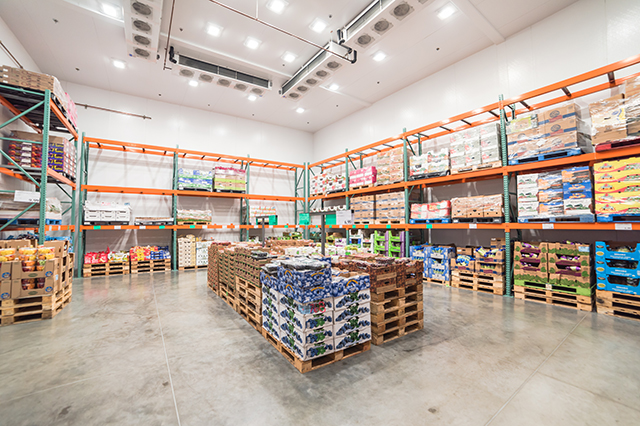Buying in bulk seems like a no-brainer savings plan, but the truth is if you don’t know what you are doing you could be wasting money on your bulk shopping trips. The myth that items are always cheaper when you buy larger packages is just that: a myth.
We all get excited at the prospect of saving money, but finding deals when you’re buying in bulk takes a bit of work. Simply shopping at a bulk warehouse store doesn’t guarantee that you’ll see any savings because bigger packages aren’t always a better value.
That is not to say that bulk shopping can’t save your family money; it can when you’re savvy. But it’s your responsibility as a consumer to be educated and make wise decisions about your bulk purchases. To avoid splurging, follow these savings tips and make the most out of your next bulk shopping trip.

(Sean Locke Photography)
Bulk shopping basics
The No. 1 rule for buying in bulk comes down this: Is the price per unit of a bulk item cheaper than a smaller packaged item? Any veteran bulk shopper knows the importance of checking the price per unit. This requires a bit of basic math skills, unless the store has been kind enough to list the price per unit, which is sometimes the case. If math isn’t your strength, fear not. Free apps like CalUnit and Unit Price Calculator can help you compute the price per unit.
The math is also fairly simple to figure out for yourself. Here’s what you’ll have to solve: the cost of the item/the quantity = unit price. Let’s say a 14-ounce bottle of ketchup is $3.59. You will need to divide $3.59 by 14 (the quantity) to get the price per unit, which is 25 cents.
Once you figure out the price per unit for your bulk item, compare it with the smaller packaged item. Which one is cheaper per unit? You may find that buying a 14-ounce bottle of ketchup is ultimately cheaper than a 114-ounce container, or perhaps the opposite is true. You’ll never know unless you do the math.
What to buy
Even if the price per unit is a good deal, resist the urge to stock up on items that will expire quickly. Generally items with a long-shelf life are the best to buy in bulk. Batteries, trash bags, pasta, canned goods, paper products, toothpaste, alcohol and office and school supplies are some examples. Generic items are also a good value to purchase in large quantities since they’re cheaper than brand-name products. If you have space in your freezer, purchasing beef and poultry in bulk can also help you stretch your grocery budget.
Warehouse stores are the most popular bulk shopping spots. But your local grocery store or co-op may also offer bulk discounts that aren’t always advertised. Ask an employee at your favorite store if they carry bulk items at discounted prices.
Questionable bulk purchases
Not every product is better to buy in bulk. For instance, buying 10 jumbo boxes of cereal for a household of two people isn’t wise. You’ll likely have to eat cereal for breakfast, lunch and dinner to justify the purchase. Perishables are generally not a good investment to buy in bulk, unless you have a large household or are planning a big party. If you won’t eat it and don’t have the freezer space, don’t buy it.
That brings up another important consideration to keep in mind: storage space. Before you buy 100 rolls of discounted paper towels, ask yourself where you will store the items. Sometimes in the excitement of discount shopping you don’t consider the logistics of storing your purchases. Even if the price per unit is a fantastic deal, ask yourself if you have the storage space in your refrigerator or pantry.
Unnecessary bulk purchases can also ruin a healthy diet. Purchasing a few cases of junk food may be a killer deal, but you’re more likely to binge eat when you have cupboards packed with discounted boxes of cookies and chips.
More shopping tips
Bulk shopping, when done right, can stretch your household’s grocery budget. As an added bonus, you’re also being green by reducing packaging waste. Many stores allow you to bring your own containers to refill loose bulk foods like rice and beans.
Make your bulk shopping trips count by stocking up on groceries for a few weeks or even a month. When tallying your savings, remember to factor in the membership dues that you pay at a warehouse store. Also consider the time and driving costs associated with each shopping trip.
If you’re burning an hour of gas each way to drive to the warehouse store and paying a $69 annual membership fee, are you really saving money?
To maximize your savings, look for sales and bring manufacturer and store coupons to the checkout.
Do you have your own science when it comes to buying in bulk? Share your method with us and your fellow AAA members in the comments section below.
You can find more savings at AAA.com/Discounts!
















